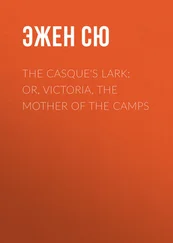Willa Cather - The Song of the Lark
Здесь есть возможность читать онлайн «Willa Cather - The Song of the Lark» — ознакомительный отрывок электронной книги совершенно бесплатно, а после прочтения отрывка купить полную версию. В некоторых случаях можно слушать аудио, скачать через торрент в формате fb2 и присутствует краткое содержание. Жанр: unrecognised, на английском языке. Описание произведения, (предисловие) а так же отзывы посетителей доступны на портале библиотеки ЛибКат.
- Название:The Song of the Lark
- Автор:
- Жанр:
- Год:неизвестен
- ISBN:нет данных
- Рейтинг книги:5 / 5. Голосов: 1
-
Избранное:Добавить в избранное
- Отзывы:
-
Ваша оценка:
- 100
- 1
- 2
- 3
- 4
- 5
The Song of the Lark: краткое содержание, описание и аннотация
Предлагаем к чтению аннотацию, описание, краткое содержание или предисловие (зависит от того, что написал сам автор книги «The Song of the Lark»). Если вы не нашли необходимую информацию о книге — напишите в комментариях, мы постараемся отыскать её.
libreka classics – These are classics of literary history, reissued and made available to a wide audience.
Immerse yourself in well-known and popular titles!
The Song of the Lark — читать онлайн ознакомительный отрывок
Ниже представлен текст книги, разбитый по страницам. Система сохранения места последней прочитанной страницы, позволяет с удобством читать онлайн бесплатно книгу «The Song of the Lark», без необходимости каждый раз заново искать на чём Вы остановились. Поставьте закладку, и сможете в любой момент перейти на страницу, на которой закончили чтение.
Интервал:
Закладка:
That evening Dr. Archie was seated in his office, his desk chair tilted back, reading by the light of a hot coal-oil lamp. All the windows were open, but the night was breathless after the sandstorm, and his hair was moist where it hung over his forehead. He was deeply engrossed in his book and sometimes smiled thoughtfully as he read. When Thea Kronborg entered quietly and slipped into a seat, he nodded, finished his paragraph, inserted a bookmark, and rose to put the book back into the case. It was one out of the long row of uniform volumes on the top shelf.
"Nearly every time I come in, when you're alone, you're reading one of those books," Thea remarked thoughtfully. "They must be very nice."
The doctor dropped back into his swivel chair, the mottled volume still in his hand. "They aren't exactly books, Thea," he said seriously. "They're a city."
"A history, you mean?"
"Yes, and no. They're a history of a live city, not a dead one. A Frenchman undertook to write about a whole cityful of people, all the kinds he knew. And he got them nearly all in, I guess. Yes, it's very interesting. You'll like to read it some day, when you're grown up."
Thea leaned forward and made out the title on the back, "A Distinguished Provincial in Paris."
"It doesn't sound very interesting."
"Perhaps not, but it is." The doctor scrutinized her broad face, low enough to be in the direct light from under the green lamp shade. "Yes," he went on with some satisfaction, "I think you'll like them some day. You're always curious about people, and I expect this man knew more about people than anybody that ever lived."
"City people or country people?"
"Both. People are pretty much the same everywhere."
"Oh, no, they're not. The people who go through in the dining-car aren't like us."
"What makes you think they aren't, my girl? Their clothes?"
Thea shook her head. "No, it's something else. I don't know." Her eyes shifted under the doctor's searching gaze and she glanced up at the row of books. "How soon will I be old enough to read them?"
"Soon enough, soon enough, little girl." The doctor patted her hand and looked at her index finger. "The nail's coming all right, isn't it? But I think that man makes you practice too much. You have it on your mind all the time." He had noticed that when she talked to him she was always opening and shutting her hands. "It makes you nervous."
"No, he don't," Thea replied stubbornly, watching Dr. Archie return the book to its niche.
He took up a black leather case, put on his hat, and they went down the dark stairs into the street. The summer moon hung full in the sky. For the time being, it was the great fact in the world. Beyond the edge of the town the plain was so white that every clump of sage stood out distinct from the sand, and the dunes looked like a shining lake. The doctor took off his straw hat and carried it in his hand as they walked toward Mexican Town, across the sand.
North of Pueblo, Mexican settlements were rare in Colorado then. This one had come about accidentally. Spanish Johnny was the first Mexican who came to Moonstone. He was a painter and decorator, and had been working in Trinidad, when Ray Kennedy told him there was a "boom" on in Moonstone, and a good many new buildings were going up. A year after Johnny settled in Moonstone, his cousin, Famos Serrenos, came to work in the brickyard; then Serrenos' cousins came to help him. During the strike, the master mechanic put a gang of Mexicans to work in the roundhouse. The Mexicans had arrived so quietly, with their blankets and musical instruments, that before Moonstone was awake to the fact, there was a Mexican quarter; a dozen families or more.
As Thea and the doctor approached the 'dobe houses, they heard a guitar, and a rich barytone voice—that of Famos Serrenos—singing "La Golandrina." All the Mexican houses had neat little yards, with tamarisk hedges and flowers, and walks bordered with shells or whitewashed stones. Johnny's house was dark. His wife, Mrs. Tellamantez, was sitting on the doorstep, combing her long, blue-black hair. (Mexican women are like the Spartans; when they are in trouble, in love, under stress of any kind, they comb and comb their hair.) She rose without embarrassment or apology, comb in hand, and greeted the doctor.
"Good-evening; will you go in?" she asked in a low, musical voice. "He is in the back room. I will make a light." She followed them indoors, lit a candle and handed it to the doctor, pointing toward the bedroom. Then she went back and sat down on her doorstep.
Dr. Archie and Thea went into the bedroom, which was dark and quiet. There was a bed in the corner, and a man was lying on the clean sheets. On the table beside him was a glass pitcher, half-full of water. Spanish Johnny looked younger than his wife, and when he was in health he was very handsome: slender, gold-colored, with wavy black hair, a round, smooth throat, white teeth, and burning black eyes. His profile was strong and severe, like an Indian's. What was termed his "wildness" showed itself only in his feverish eyes and in the color that burned on his tawny cheeks. That night he was a coppery green, and his eyes were like black holes. He opened them when the doctor held the candle before his face.
"MI TESTA!" he muttered, "MI TESTA," doctor. "LA FIEBRE!" Seeing the doctor's companion at the foot of the bed, he attempted a smile. "MUCHACHA!" he exclaimed deprecatingly.
Dr. Archie stuck a thermometer into his mouth. "Now, Thea, you can run outside and wait for me."
Thea slipped noiselessly through the dark house and joined Mrs. Tellamantez. The somber Mexican woman did not seem inclined to talk, but her nod was friendly. Thea sat down on the warm sand, her back to the moon, facing Mrs. Tellamantez on her doorstep, and began to count the moon flowers on the vine that ran over the house. Mrs. Tellamantez was always considered a very homely woman. Her face was of a strongly marked type not sympathetic to Americans. Such long, oval faces, with a full chin, a large, mobile mouth, a high nose, are not uncommon in Spain. Mrs. Tellamantez could not write her name, and could read but little. Her strong nature lived upon itself. She was chiefly known in Moonstone for her forbearance with her incorrigible husband.
Nobody knew exactly what was the matter with Johnny, and everybody liked him. His popularity would have been unusual for a white man, for a Mexican it was unprecedented. His talents were his undoing. He had a high, uncertain tenor voice, and he played the mandolin with exceptional skill. Periodically he went crazy. There was no other way to explain his behavior. He was a clever workman, and, when he worked, as regular and faithful as a burro. Then some night he would fall in with a crowd at the saloon and begin to sing. He would go on until he had no voice left, until he wheezed and rasped. Then he would play his mandolin furiously, and drink until his eyes sank back into his head. At last, when he was put out of the saloon at closing time, and could get nobody to listen to him, he would run away—along the railroad track, straight across the desert. He always managed to get aboard a freight somewhere. Once beyond Denver, he played his way southward from saloon to saloon until he got across the border. He never wrote to his wife; but she would soon begin to get newspapers from La Junta, Albuquerque, Chihuahua, with marked paragraphs announcing that Juan Tellamantez and his wonderful mandolin could be heard at the Jack Rabbit Grill, or the Pearl of Cadiz Saloon. Mrs. Tellamantez waited and wept and combed her hair. When he was completely wrung out and burned up,—all but destroyed,—her Juan always came back to her to be taken care of,—once with an ugly knife wound in the neck, once with a finger missing from his right hand,—but he played just as well with three fingers as he had with four.
Читать дальшеИнтервал:
Закладка:
Похожие книги на «The Song of the Lark»
Представляем Вашему вниманию похожие книги на «The Song of the Lark» списком для выбора. Мы отобрали схожую по названию и смыслу литературу в надежде предоставить читателям больше вариантов отыскать новые, интересные, ещё непрочитанные произведения.
Обсуждение, отзывы о книге «The Song of the Lark» и просто собственные мнения читателей. Оставьте ваши комментарии, напишите, что Вы думаете о произведении, его смысле или главных героях. Укажите что конкретно понравилось, а что нет, и почему Вы так считаете.












